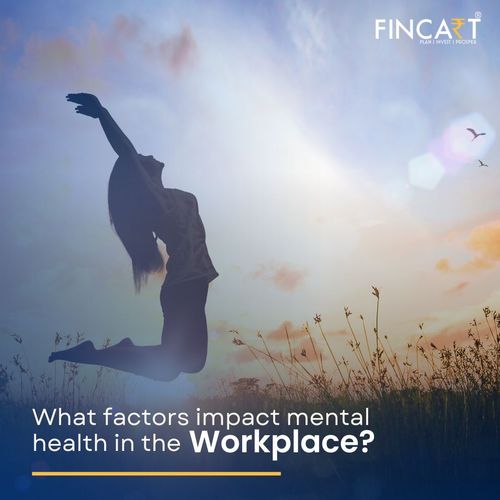Table of Contents
Toggle“Almost everything will work again if you unplug it for a few minutes, including your mind”- Anne Lamott
Terms like moonlighting, great resignation, and quiet quitting may have caught your attention. One term, however, was unequivocally ignored was mental health at the workplace. Stress, anxiety, and depression are feelings faced by everyone, but people are STILL quite skeptical about talking about their feelings. The question is WHY?
There have been many global surveys stating the fact that employees are increasingly feeling anxious, burned out, and even depressed.
There is no doubt to say this, that work-related risk factors play a negative role in an employee’s mental health. Creating an atmosphere where you can talk to someone about your problems at your workplace should be an acceptable option. The cases of mental health have even risen more after COVID-19. However, COVID is not only a sole contributor, there are other factors too like:
- Loss of job due to downsizing
- Unhealthy work-life balance
- Poor management & leadership
Everyone is dealing with some or other personal problems & work-related risks just amplifies with one’s mental health. Since we spend most of our day at work, mental health is critical for respecting ourselves and others, building positive relationships with coworkers, and coping with the challenges and responsibilities of their jobs each day.
Both employers and employees benefit from employee well-being, as it leads not just to improved organizational performance, but also to happier and more productive employees.
Factors that impact mental health in the workplace:
Several things can negatively affect the mental health of employees at work, including:
Poor communication and management practices
Kind and engaging communication and management practices are the mark of a good manager-employee relationship. Conversely, poor communication and practices lead to strained relationships, poor mental health, and increased workplace stress.
Ineffective leadership, lack of support from supervisors, and a lack of recognition or feedback can negatively impact mental health. Employees who do not feel valued or supported may experience reduced job satisfaction and increased stress.
Low levels of support for employees
Managers who don’t help remove obstacles or share resources with employees can contribute to employees feeling overwhelmed and unmotivated. Instead of expecting employees to figure out tasks they are unclear about, managers should demonstrate how to accomplish them and be available to answer questions.
Performance pressure
The expectations of employees to constantly perform at peak levels put unreasonable pressure on them. Excessive workloads, long working hours, unrealistic deadlines, and high job demands can lead to stress, burnout, and anxiety among employees. Feeling overwhelmed and unable to cope with the workload can negatively impact mental health.
The work-life balance
An imbalance between work and personal life can contribute to mental health issues. When employees are unable to allocate enough time for relaxation, hobbies, and relationships outside of work, it can lead to stress, exhaustion, and decreased overall well-being.
Organizational Culture:
The culture of an organization can significantly impact mental health. A toxic work environment characterized by bullying, harassment, discrimination, or lack of support from colleagues and supervisors can contribute to anxiety, depression, and other mental health conditions.
Job Insecurity:
Job loss due to the COVID-19 pandemic became a major stressor for employees in 2020. An individual’s mental health can be adversely affected by the fear of not being able to pay bills or care for their family. Stress and anxiety can be caused by uncertainty about job stability, fear of layoffs, and constant pressure to perform well.
Also Read: Does Your Health Insurance Cover Covid 19?
Bottom Line:
When you feel good mentally and emotionally, you approach your job with good mental health, which can impact employee well-being and productivity. It’s easy for you to adapt, be flexible, and be resilient. The challenges you face are manageable for you. Your contributions to your team are valuable, and you thrive both personally and professionally. Having poor mental health at work, even if it isn’t extreme, negatively impacts your job in many ways.
STAY tuned for the next blog where we’ll be explaining how negatively & positively your mental health impacts your work/job!




